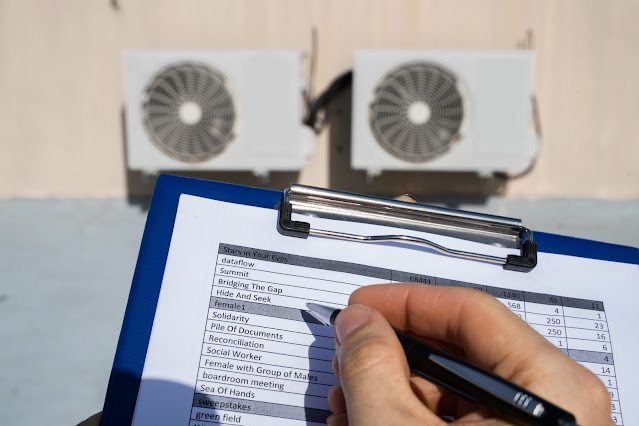The Science of Comfort: Inside Secrets of Air Conditioner Restoration
Introduction
In a world where scorching summer days are becoming increasingly common, the role of air conditioners in maintaining our comfort cannot be overstated. Air conditioners, often referred to as ACs, have become an indispensable part of our lives. But have you ever wondered what goes on behind the scenes to keep your space cool and comfortable? This article will delve into the fascinating world of air conditioner restoration, uncovering the science and secrets that make it possible.
The Basics of Air Conditioning
Understanding the Principles of Cooling
To comprehend air conditioner restoration, we must first grasp the fundamental principles of cooling. Air conditioners operate on a simple yet ingenious concept: the removal of heat from an enclosed space. They achieve this through a cycle of refrigeration, involving the compression and expansion of a refrigerant.
Components of an Air Conditioner
An air conditioner comprises several key components, each playing a crucial role in the cooling process. These include the compressor, condenser, evaporator, and the refrigerant itself. The compressor, often called the heart of the AC, pressurizes the refrigerant gas, initiating the cooling cycle.
The Science Behind Cooling
The Refrigeration Cycle
The core of air conditioner restoration lies in the refrigeration cycle. It begins with the compressor, which compresses the low-pressure refrigerant gas, causing it to heat up. The hot gas then flows to the condenser, where it releases heat to the surrounding environment and transforms into a high-pressure liquid.
Evaporation and Cooling
The high-pressure liquid enters the evaporator, where it undergoes a rapid expansion, turning back into a low-pressure gas. During this phase change, heat is absorbed from the indoor air, effectively cooling it down. The cooled air is then circulated back into your living area.
The Importance of Maintenance
Preventive Measures
To ensure the longevity and efficiency of your air conditioner, regular maintenance is paramount. Simple tasks like cleaning or replacing filters, checking for refrigerant leaks, and inspecting electrical connections can go a long way in preventing breakdowns and costly repairs.
Air Conditioner Restoration Services
Inevitably, even well-maintained AC units may require restoration. Professional restoration services specialize in diagnosing and fixing complex issues such as compressor failures, refrigerant recharge, and electrical malfunctions. These experts have the knowledge and tools necessary to breathe new life into your air conditioner.
Eco-Friendly Cooling
The Impact of Air Conditioners on the Environment
While air conditioners offer comfort, they also have environmental consequences. The refrigerants used in older AC units, such as chlorofluorocarbons (CFCs), contribute to ozone depletion. Modern ACs, however, utilize more eco-friendly refrigerants like hydrochlorofluorocarbons (HCFCs) and hydrofluorocarbons (HFCs).
Energy Efficiency
In recent years, energy-efficient air conditioners have gained popularity. These units consume less electricity, reducing both your carbon footprint and energy bills. Investing in an energy-efficient AC is a step towards a greener and more sustainable future.
Conclusion
In conclusion, air conditioner restoration is a blend of science, technology, and expertise. Understanding the principles of cooling, the components of an AC, and the importance of maintenance can help you make informed decisions regarding your cooling needs. Moreover, as we strive for a more sustainable world, embracing eco-friendly cooling options is a responsible choice.
Frequently Asked Questions (FAQs)
1. How often should I service my air conditioner?
Regular maintenance is recommended at least once a year, ideally before the summer season begins. However, if you notice any issues, it's best to call for service promptly.
2. Can I restore my air conditioner on my own?
While some minor maintenance tasks can be performed by homeowners, complex restoration work should be left to professionals with the necessary expertise and tools.
3. Are older air conditioners less eco-friendly?
Yes, older AC units tend to use refrigerants that are harmful to the environment. Upgrading to a modern, eco-friendly AC is a greener choice.
4. What are the signs that my air conditioner needs restoration?
Signs of AC trouble include reduced cooling efficiency, strange noises, and unusual odors. If you experience any of these issues, it's advisable to seek professional assistance.
5. How can I make my air conditioner more energy-efficient?
You can improve energy efficiency by setting the thermostat at an optimal temperature, ensuring proper insulation, and considering the purchase of an energy-efficient AC unit.






